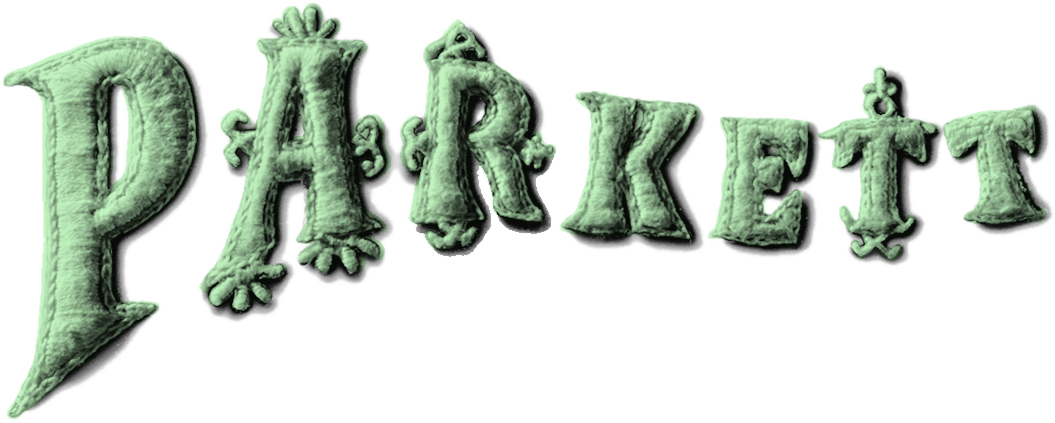Browse Selected Texts and more on the Collaboration Artists
Artist Insert
Editorial
COSMETICS & CARS. Commodities, consumer goods: These are the source materials for the artistic investigations of the three collaboration artists in this issue of Parkett. Pop Art is the twentieth century movement par excellence which gave a radical twist to the new and rapid rise of consumerism as the prime mover of modern living conditions. James Rosenquist is not only one of Pop Art’s most important exponents, but also a fascinating contemporary artist of the first order. The fact that he once created gigantic billboards at dizzying heights above the streets of Manhattan ties in with a breathtaking artistic career of great consequence. From his earliest days, Rosenquist moved into adventurous territory in the persistently manual production of his paintings: light, nature, the universe neither complement nor oppose the Pop world of consumerism. His gaze, universal and topical, subtly transfers the complexity of marketing aesthetics to the canvas. Jeff Koons in conversation with Rosenquist reveals additional insight into this oeuvre: “Your work seems very generous, not trying to alienate the viewer... .” When Sylvie Fleury directs her artistic attention to the circulation of goods in the venous system of avant-garde women’s fashions, we are confronted with an agenda as guileful as it is revealing. With disarming sophistication she stages the meeting and mixing of art and marketing technologies in the museum or gallery space—for example, when ”Obsession” or “insensé” (insane, foolish) is placed on the wall and the ghosts of the Dadaists and the Surrealists are invoked with the help of perfumers hawking their wares. Tellingly, this happens in the echoing chambers of the museum where classical values are always looking to be filled with new life. Fleury’s strategies address subcultures that are ordinarily foreign to art. For years she has cultivated an interest in the cult of cars, the world of car-racing, of men and machines. Which version of femininity is illuminated against this backdrop? Take, for instance, Fleury’s ambiguous Gucci Satellite 1 (1997): A monitor buzzing with a deep bass sound has been inserted in an enormous puff ball. The screen shows a delicately high-heeled foot—seduction incarnate—bearing down on the broad gas pedal of a muscle car. From designer goods to rummage sale. In the work of Jason Rhoades, it looks as if someone had raided a junk store or invaded the domain of the hardware-store fetishist in order to rebuild and explain the universe. At times his enterprise offers an infectiously refreshing antidote for the feeling of helplessness caused by the constant flood of goods that daily threatens to inundate us. Based on the principles of production, distribution and supply, it may seem well ordered, but when Jason Rhoades faces it, he becomes a crazy gardener capable of keeping the onslaught under control and investing it with meaning. In his spectacular exhibition, ”A Perfect World,” shown this winter at the Deichtorhallen in Hamburg, he recreated his father’s garden, while his edition for Parkett—gourds painted by his mother Jackie—coalesces into another playfully cautionary message that the business of creating something and generating meaning quite simply represents a noble human task. Also in this issue an insert by Henry Bond.
Table of Content
Modernism and the Stalinist Sublime by Slavoj Zizek
Jane & Louise Wilson in the Light of the Gothic Tradition by Gilda Williams
James Rosequist
Time after Time by John Russell
If You Get a Little Red on You, Don’t Wipe It Off by Jeff Koons & James Rosenquist
For Jim by Pontus Hulten
Horizon Home Sweet Home by Zdenek Felix
Rosenquist’s Craft – Painting and the Limits of the Machine by Michael Lobel
Stories in T-Shirt Yellow by Constance W. Glenn
Sylvie Fleury
From Lacan’s Drive to Rodeo Drive – Marketing and Minimalism in Fleury’s Fictional Feminity by Adrian Dannatt
Customize by Beatrix Ruf
The Nonchalence of Continous Tense-ness by Jutta Koether
Jason Rhodes
Given 1. The Caprice, 2. The Ferrari by Russell Ferguson
Tangential Talk on Rhoades by Eva Meyer-Hermann & Christian Scheidemann
The Soluble Fish Is Better Off on the Beach by Roberto Ohrt
Henry Bond, Insert
Deep Shit – An Interview, Paul Miller & Chris Ofili
Susann Walder – Alchemist of the Everyday, Les Infos du Paradis by Anna Helwing
Further Adventures in the Two-Party System, Cumulus from America by David Robbins
Sacrilege is Positive, Cumulus from Europe by Hilde Teerlinck
What’s up with Hans Peter Kuhn by Knut Ebeling





